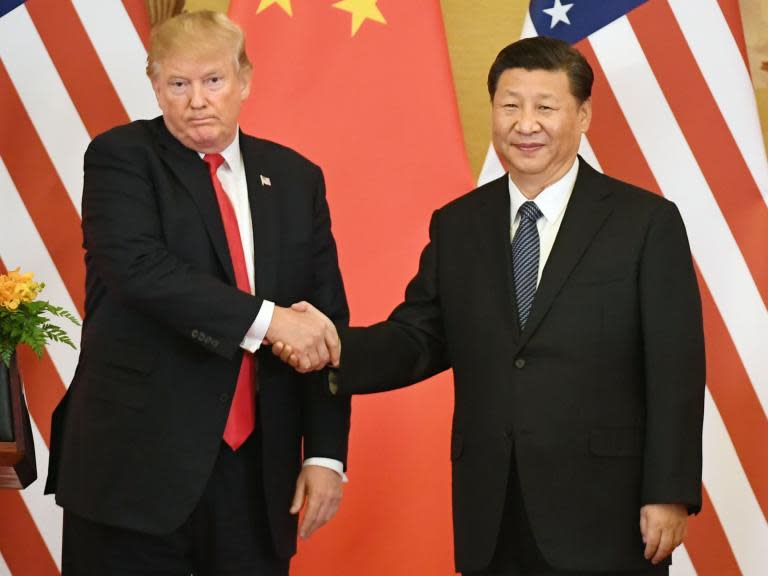If we are due another recession, a trade war isn’t going to be helpful
It’s hard, when any apparently radical political or economic event happens, to gauge whether this is just part of the usual noise of the daily newsflow, or whether this is something different and huge. And so it is with the looming trade war between the US and China.
Put it this way. Could a trade war be the thing that first triggers the next global recession, and then makes it much harder to escape from it?
Taken in isolation, President Trump’s proposal of 25 per cent tariffs on a range of Chinese exports to the US is not that massive a deal. It sounds a lot and The Donald has presented it as a charge on $60bn of Chinese imports. But run through the numbers. Last year the US imported $506bn of goods from China, which Capital Economics have calculated drove 2.5 per cent of Chinese demand last year. So these tariffs, if enacted, would affect only 0.25 per cent of Chinese output. Add in the fact that industries that rely on Chinese imports will lobby for exclusions and Capital Economics reckons that the hit to Chinese growth will be no more than 0.1 per cent of GDP.
The cautious response by the Chinese authorities, that they are preparing tariffs on $3bn US exports to China, suggests some sort of accommodation will be reached – which presumably was the intention of the President. Make a lot of noise, get some concessions, cut a deal.
If this is right then what is happening is not so different from the way in which the US responded to Japanese imports in the 1980s. Then Japan was accused of playing the international trade game unfairly, copying foreign products and using regulatory barriers, such as spurious safely concerns, to exclude foreign imports. Pressure by the US led to a shift in Japanese practices, including locating car assembly plants there and in the UK. Eventually everything calmed down.
The Chinese leadership is acutely aware of Japanese mistakes, including allowing a runaway financial boom to get out of control, and has sought to learn from them. I think that explains the low-key response now.
If this line of argument is right, then these trade skirmishes will be just that: a spat, not a war. Indeed you could say that what the US is doing constitutes a helpful, if crude, warning that countries must not abuse the growing freedom of world trade by running up socially unacceptable current account surpluses.
But there has to be a nagging doubt that we are on an uncomfortable slope down which we must not slide, and the folk-memory of the 1930s still looms over everything.
That nagging doubt explains in part the negative reaction on US markets, but it is hard to distinguish the impact of trade from other factors, including rising interest rates, the Facebook scandal, and a more general concern that this bull market may have run its course.
Markets are markets and after any long bull run there will at some stage be a correction. We may well be heading there right now. What would be more troubling would be if the next global slowdown were damaged further by trade conflict. It is difficult. If you look at current data in the developed world – inflation, job creation, manufacturing output and all that – it is all more or less OK. But things looked OK in 2006 and most of us were scarred by the scale of the last downturn in 2008-09. Common sense says that after a recession of that magnitude the next one is likely to be more muted and I think that is right. But even if trade tensions are contained, they don’t help. At the margin the next downturn might be a bit more serious that it would otherwise have been.
Meanwhile, ponder this. Donald Trump has been clear on one thing. He regards the success of the American economy, and the recognition of that in financial markets, as his prime aim. If you make the country poorer by embarking on a trade war, then you are not doing what you set out to do. If the markets really tank that would be a harsh judgement on his presidency.

 Yahoo News
Yahoo News 

